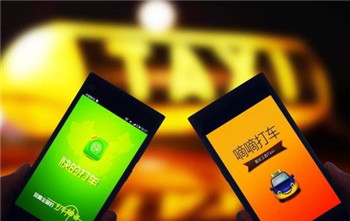
HONG KONG — As companies listed in China continue to suffer fallout from the stock market collapse, the Chinese ride-sharing app Didi Kuaidi on Wednesday showed why it is good to be private.
香港——随着在中国上市的公司继续因为股市暴跌而受影响,中国拼车软件滴滴快的周三表明了为何不上市对公司有利。
The company, whose smartphone services connect users to taxis and private drivers, said in a statement that it had raised $2 billion in a new round of fund-raising, and might raise still more.
滴滴快的在声明中称,公司已在新一轮融资中筹得20亿美元,而且这个数字可能还会增加。滴滴快的的智能手机服务可以把用户与出租车和私家车司机联系起来。
Didi Kuaidi set out to raise $1.5 billion on June 22, according to its president, Jean Liu. Within five days, the goal had been met, and now the company has closed on at least $2 billion.
总裁柳青表示,公司原计划从6月22日开始融资15亿美元。结果,滴滴快的在五天内就完成了这个目标,如今则已筹得至少20亿美元。
‘‘All of our investors are super-long-term investors, and they won’t get affected by short-term hiccup’’ in the stock market, Ms. Liu said. ‘‘They see another Alibaba coming.’’
“我们的所有投资者都是超长期投资者,他们不会因为(股市的)短期波动而受影响,”柳青说。“他们看到了另一个阿里巴巴。”
After one of the largest private fund-raising rounds completed by a start-up, Didi Kuaidi’s ability to attract money shows that investor enthusiasm for popular and fast-growing Chinese start-ups remains unquenched, despite the recent downturn in the markets.
滴滴快的的融资,是初创企业所完成的规模最大的私人融资之一。它吸引资金的能力表明,尽管最近股市下跌,投资者对颇受欢迎且发展迅速的中国初创企业的热情仍未消减。
The success of the round also highlights the differences between the top venture capital firms and ordinary investors. As individual investors scramble to pull their money out of sagging stock markets, professionals looking to capitalize on the longer-term growth of start-up stars like Didi Kuaidi remain undeterred.
此次融资的成功还突显了顶级风险投资公司和普通投资者之间的区别。正当个人投资者争先恐后地把他们的钱从下跌的股市中拿出来时,希望从滴滴快的等初创企业之星的长期增长中获益的专业人士并未被吓到。
After the fund-raising round, Didi Kuaidi has cash reserves of $3.5 billion, which it said it would spend on building new services, financing research in data analytics and improving customer experiences.
融资结束后,滴滴快的的现金储备达到了35亿美元。公司表示,这笔钱将用来构建新的服务、为数据分析的研究提供资金及改善用户体验。
The success of the new round is probably a response to the fast growth of Uber in China. The American ride-hailing service has seen its popularity in China go through the roof since it began offering major subsidies to both drivers and passengers. It has inspired a gangsta rap fan song in China.
新一轮融资的成功,或许也是对优步(Uber)在中国的迅速发展的回应。自从开始向司机和乘客提供大量补贴,这家美国打车服务公司在中国的受欢迎程度出现飙升。中国甚至还有人为它写了一首匪帮说唱风格的粉丝之歌。
But Didi Kuaidi was born in competition as the amalgam of two companies, Didi Dache and Kuaidi Dache, that spent heavily and competed ruthlessly for market share in 2013 and 2014 before joining forces.
但是,滴滴快的诞生于竞争之中,由滴滴打车和快的打车这两家公司合并而成。在合并前的2013年和2014年,这两家公司为争夺市场份额投入了大量资金并进行了残酷的竞争。
In response to Uber’s challenge, Didi Kuaidi began its own private car service, called Kuaiche, and said it would spend $1 billion renminbi, or about $160 million, on subsidies.
为了应对优步的挑战,滴滴快的开始了自己被称作“快车”的私家车服务。公司表示将投资10亿元人民币用于补贴。
Ms. Liu, the Didi Kuaidi president, was reluctant to say whether any of the company’s new cash would help the company compete with Uber. But she left the option open. ‘‘What I want to emphasize is, we have $3.5 billion in hand,’’ Ms. Liu said. ‘‘We can be disciplined and at the same time flexible in terms of how we enlarge the market.’’
滴滴快的的总裁柳青不愿意透露,最近筹得的资金是否将用于与优步竞争。不过她也没有表示否定。“我想强调的是,我们手里有35亿美元,”柳青说。“在如何扩大市场的问题上,我们可以在遵守规则的同时,保持一定的灵活性。”


